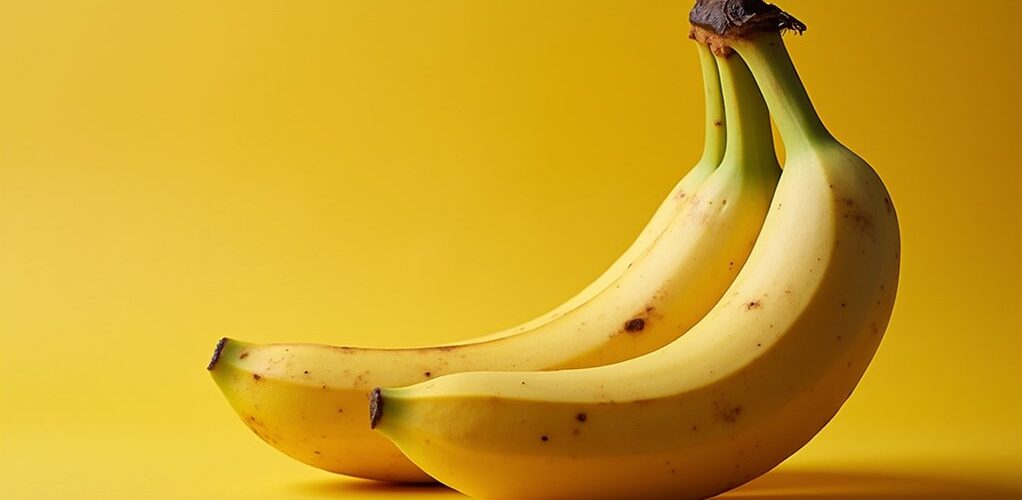
Bananas are definitely not low-carb fruits, packing a hefty 25 grams of carbohydrates in just one medium-sized banana. While they're packed with beneficial nutrients like potassium and vitamin B6, their high sugar content makes them a challenging choice for people following keto or low-carb diets. Better fruit options include raspberries, strawberries, and avocados, which contain far fewer carbs. Understanding smart portion sizes and tasty alternatives can help anyone navigate the banana dilemma.
Key Takeaways
- Bananas are not low-carb, containing 25 grams of carbohydrates per medium banana, with 14 grams from sugars.
- The high glycemic index of bananas can spike blood sugar levels, making them unsuitable for keto or low-carb diets.
- Lower-carb fruit alternatives include berries (5.5g net carbs) and avocados (1.84g net carbs) per 100 grams.
- Portion control helps manage carb intake – half a banana contains 13.5 grams of carbohydrates.
- Despite high carbs, bananas offer valuable nutrients like potassium, vitamin C, and vitamin B6 for general healthy diets.
Understanding Banana Carbohydrate Content
Bananas, those curved yellow fruits found in nearly every kitchen, pack quite a carbohydrate punch that might surprise health-conscious eaters. A medium banana contains a whopping 25 grams of carbohydrate content, with 14 grams coming from sugars alone. That's quite a bundle of natural sweetness!
When it comes to following a low-carb diet or keto diet, bananas unfortunately don't make the cut. Unlike their berry cousins, which are perfect low-carb fruits, bananas have a high net carb count due to their minimal fiber content.
For folks trying to limit carbohydrate intake, bananas are not a recommended choice – they're more like nature's candy bar! While these tropical treats are nutritious in many ways, anyone watching their carbs might want to reach for strawberries or blueberries instead.
Banana's Impact on Blood Sugar and Ketosis
When it comes to blood sugar and ketosis, consuming bananas can create quite a challenge for anyone trying to keep their glucose levels steady.
These sweet tropical fruits pack a whopping 25 grams of carbohydrates per 100 grams, which can send blood sugar levels on quite the roller coaster ride!
For folks following ketogenic diet or other low-carb diets, bananas are basically a no-go.
Their high glycemic index causes insulin levels to spike, making it super tricky to maintain ketosis – that awesome fat-burning state keto dieters work so hard to achieve.
Even sneaking in a small piece can quickly eat up your daily carb limit!
Instead of reaching for that banana, smart low-carb eaters opt for fruit alternatives like berries or avocados, which won't kick them out of ketosis or send their blood sugar soaring.
The ketogenic diet greatly reduces blood glucose levels and stabilizes HbA1c, preventing harmful blood sugar spikes.
Comparing Bananas to Other Fruits
When looking at the numbers, bananas pack a hefty 25 grams of carbs per 100 grams, which towers over berries that contain only about 5 grams.
For those watching their carb intake, nature offers plenty of tasty alternatives like raspberries, blackberries, and even tomatoes, which won't send blood sugar levels through the roof.
Even apples, with their moderate 11 grams of carbs per 100 grams, are a better choice for carb-conscious eaters than our curved yellow friends, though they still can't compete with super-low-carb champions like avocados.
Carb Content By Numbers
To understand how bananas stack up against other fruits in the carb department, looking at the numbers tells quite a story. With 25 grams of carbohydrates per 100 grams, bananas pack quite the carb punch!
For those following a low-carb diet or focused on weight loss, there are definitely better choices available.
Take raspberries and strawberries, for instance – these sweet treats contain only about 5.5 grams of net carbs per 100 grams, making them fantastic low carb fruits.
Blueberries come in a bit higher at 17.8 grams per cup, but they're still lighter on carbs than their yellow curved cousins.
The real champion of low-carb fruits, though, is the mighty avocado, with a mere 1.84 grams of net carbs per 100 grams – now that's something to guac about!
Banana Alternatives Worth Considering
Since bananas aren't ideal for low-carb lifestyles, plenty of exciting alternatives can satisfy those fruit cravings without derailing dietary goals. For those following a keto diet, avocados reign supreme with just 1.84g of net carbs per 100g, while berries offer sweet satisfaction with appreciably lower carb counts than bananas. Even tomatoes, the surprising fruit hiding in plain sight, make a fantastic low-carb option.
| Fruit | Net Carbs (per 100g) | Health Benefits | Best Used In |
|---|---|---|---|
| Avocados | 1.84g | Healthy fats, fiber | Salads, smoothies |
| Tomatoes | 2.69g | Lycopene, vitamin C | Savory dishes |
| Blackberries | 4.90g | Antioxidants | Snacks, desserts |
| Strawberries | 5.50g | Vitamin C | Breakfast, treats |
Low-Carb Fruit Alternatives for Keto Dieters
Although bananas may be off the menu for keto dieters, plenty of delicious fruits can still satisfy sweet cravings without breaking carb limits.
For those watching their carbs, avocados reign supreme with just 1.84g of net carbs per 100g while packing healthy fats that keep hunger at bay.
Nature's candy comes in the form of berries, with raspberries and blackberries containing only 5.44g and 4.9g of net carbs respectively – plus they're loaded with antioxidants!
Don't forget about tomatoes, the surprisingly versatile low-carb fruit that adds savory flair to meals with merely 2.69g of net carbs.
For a revitalizing treat, melons like cantaloupe and honeydew offer sweet satisfaction while keeping carb counts reasonable at around 8g per 100g, making them perfect for staying hydrated on a keto journey.
Additionally, low-carb vegetables like spinach and kale are nutrient-dense options that can complement your keto diet with essential vitamins and minerals.
The Nutritional Benefits of Bananas
While some fruits may not fit a low-carb lifestyle, bananas pack an impressive nutritional punch that makes them a powerhouse snack for many people. These yellow dynamos are loaded with potassium, delivering a whopping 358 mg per 100g, which helps keep blood pressure in check and muscles working smoothly.
Beyond their natural sugars and carbohydrates, bananas deliver a bundle of health benefits. They're packed with dietary fiber for happy digestion, vitamin C to boost immune function, and essential vitamins and minerals that support overall wellness.
The vitamin B6 in bananas is particularly awesome for brain health and metabolism. While they might not be the lowest-carb fruit at the produce stand, their nutritional benefits make them a smart choice for anyone not strictly counting carbs.
When to Include Bananas in a Low-Carb Diet
So you're following a low-carb diet but can't imagine life without bananas? While these sweet fruits are typically high in carbs, there are smart ways to include them without derailing your diet. The key is strategic timing and portion control.
| When to Eat | Portion Size | Best Pairings |
|---|---|---|
| Post-workout | 1/4 banana | Protein shake |
| Breakfast | 1/3 banana | Greek yogurt |
| Pre-exercise | 1/2 banana | Almond butter |
| Special treats | As flavoring | Low-carb smoothie |
Consider using bananas as an occasional flavoring in recipes or enjoying them post-workout when your body can better handle the net carb content. To minimize blood sugar spikes, always pair them with protein or healthy fats. Remember to track your daily carb limits and adjust other meals accordingly when including this fruit in your low-carb diet.
Smart Portion Sizes for Banana Consumption
Managing portion sizes is one of the smartest ways to keep bananas in a low-carb lifestyle. By carefully monitoring banana consumption and understanding how to pair this fruit with other foods, you can enjoy its essential nutrients while maintaining your daily carb goals.
Here's how to master your portion sizes:
- Cut bananas in half to slash carb intake from 27g to a more manageable 13.5g.
- Team up your banana slices with protein-rich foods to avoid those dreaded blood sugar spikes.
- Spread some healthy fat like almond butter on small portions to make them more filling.
- Track your portions throughout the day to guarantee you're not going overboard with carbs.
Banana Substitutes for Common Recipes
Maintaining a low-carb diet doesn't mean giving up favorite recipes that typically call for bananas. Several creative banana substitutes can keep dishes delicious while reducing carb content. For smoothies, unsweetened almond milk or avocado creates the perfect creamy texture, while frozen berries add natural sweetness with fewer carbs. When baking, applesauce works wonderfully as a 1:1 replacement, providing the moisture needed without the extra sugar. For a fun twist, mashed cauliflower can transform pancakes into a low-carb breakfast treat. Pureed pumpkin or zucchini also makes excellent substitutes in muffins and other baked goods, keeping them moist and flavorful. Incorporating low-carb vegetables like zucchini allows for versatile, nutritious baking options while adhering to a low-carb lifestyle. These smart swaps allow people to enjoy their favorite banana-based recipes while sticking to their low-carb lifestyle goals.
Making Informed Decisions About Fruit Choices
Making smart fruit choices means understanding how different fruits affect blood sugar levels and fit into specific diet plans. While bananas pack a hefty carb punch that can quickly derail ketosis, fruits like berries and avocados offer similar nutritional benefits with far fewer carbohydrates. Learning to swap high-sugar fruits for lower-carb alternatives helps health-conscious eaters stick to their goals while still enjoying nature's sweet treats. It's important to be aware of hidden added sugars in certain foods, as many low-fat products have sugars that disrupt ketosis.
Smart Fruit Selection Tips
When it comes to choosing fruits on a low-carb diet, smart selection can make all the difference between success and frustration.
While bananas might be off the table due to their high net carbs, plenty of delicious alternatives can satisfy sweet cravings without derailing ketogenic diet goals.
Here's what smart fruit selection looks like:
- Choose berries over high-sugar fruits – raspberries pack a flavor punch while keeping net carbs low.
- Make avocados your best friend – they're loaded with healthy fats and minimal carbs.
- Always read labels on processed fruit products to avoid sneaky hidden sugars.
- Monitor your daily fruit intake carefully to maintain ketosis.
Smart fruit selection isn't about denying yourself – it's about making informed choices that support your low-carb lifestyle while still enjoying nature's candy.
Understanding Glycemic Impact
To make smart choices about fruit on a low-carb diet, understanding glycemic impact is absolutely essential.
While bananas might seem like a healthy snack, their high carbohydrates and glycemic index can quickly derail low-carb eating goals. With about 25g of net carbs per 100g, these sweet treats can send blood sugar levels soaring faster than you can say "banana split!"
For those following ketogenic or low-carb diets, bananas pose a particular challenge. Their significant sugar content can knock the body right out of ketosis, which is definitely not the goal!
Instead of reaching for that banana, consider choosing fruits with less glycemic impact. Berries, for instance, offer a much friendlier option for maintaining stable blood sugar levels while still satisfying those fruit cravings in moderation.
Frequently Asked Questions
Can I Still Eat Bananas on a Low-Carb Diet?
Banana nutrition makes them challenging for carb counting on low-carb diets. While offering benefits, portion control is essential. For weight loss, choosing healthy alternatives like berries better aligns with dietary guidelines and meal planning.
What's the Worst Carb for Belly Fat?
Sugary beverages and processed white carbohydrate sources rank worst for belly fat, triggering insulin resistance and increased fat storage. These empty calories impair metabolic rate and counteract weight loss efforts.
What Fruit Has the Lowest Carb Count?
Among low carb fruits, avocado ranks lowest with 1.84g net carbs per 100g, making it ideal for keto-friendly diets and portion control while offering substantial fruit benefits and healthy snack options.
Are Bananas Good or Bad Carbs?
Bananas contain primarily "bad" carbs due to high sugar content and glycemic index, despite offering health benefits. Their carb-to-fiber ratio makes them unsuitable for low-carb diets, though unripe bananas have fewer sugars.
Conclusion
While bananas aren't strictly low-carb friendly, they can still fit into a balanced diet with careful planning. Smart portions, like eating half a banana or choosing them strategically before workouts, allow people to enjoy their natural sweetness without derailing health goals. For those following strict keto or low-carb diets, plenty of alternative fruits provide similar nutrients with fewer carbs. The key is making informed choices that work for individual lifestyle needs.

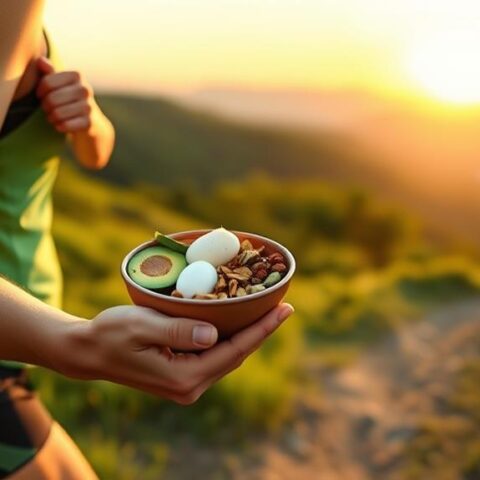
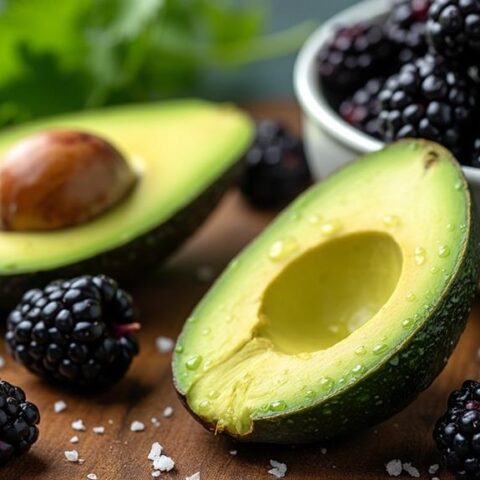
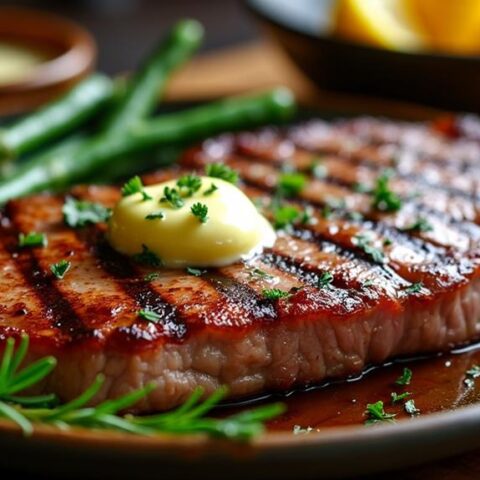

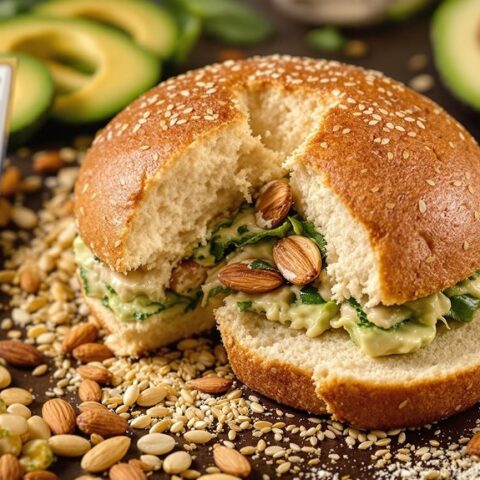




No Comments